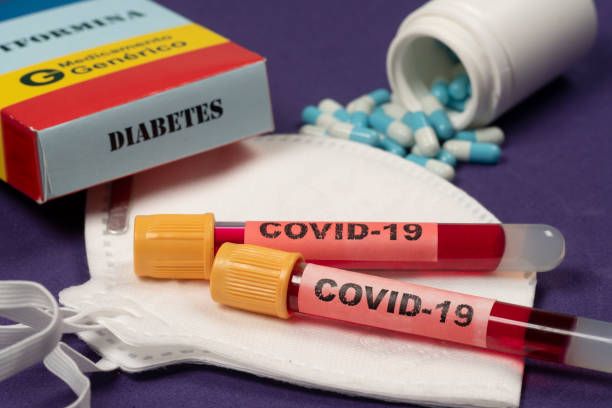COVID-19 and Diabetes.
Image credits: Unsplash

A large NIH-funded study has revealed that adults with type 2 diabetes who take metformin face a 13% to 21% lower risk of developing Long COVID or dying from COVID-19 compared to those on other diabetes medications. Analyzing health records from nearly 38 million US patients, the research underscores a significant benefit of metformin within six months post-infection. This study builds on previous 2023 NIH-supported findings, which demonstrated that metformin reduced Long COVID risk by up to 40% in adults with overweight or obesity, regardless of their diabetes status.1
Frequent use of metformin is linked to a modest reduction in the incidence of death or post-acute sequelae of SARS-CoV-2 (PASC) following infection. The incidence of PASC identified through computable phenotypes is higher than that identified by electronic health record (HER) codes, particularly within the Patient-Centered Clinical Research Network (PCORnet) database. These findings align with other observational studies, which also indicate that prevalent metformin use is associated with improved outcomes following SARS-CoV-2 infection in adults with type 2 diabetes mellitus (T2DM).2
3 Key Takeaways
- Adults with type 2 diabetes taking metformin have a 13% to 21% lower risk of developing Long COVID or dying from COVID-19 compared to those on other diabetes medications.
- The findings are based on a large analysis of nearly 38 million health records and are consistent with previous research, including a 2023 clinical trial.
- The exact mechanisms by which metformin reduces Long COVID risk are unclear, and additional studies are needed to confirm these results and understand how metformin may help manage Long COVID.
This retrospective cohort analysis utilized EHR databases from the National COVID Cohort Collaborative (N3C) and the PCORnet. The study compared individuals using metformin to those on other diabetes medications in an active comparator design. T2DM was identified either by an HbA1C level of ≥6.5 or by an EHR diagnosis code. The primary outcomes assessed were death or the development of PASC within six months, as determined by EHR codes or computable phenotypes.2
The exact mechanisms by which metformin may prevent Long COVID are not fully understood, but researchers speculate that the drug might work by reducing inflammation, decreasing viral levels, and suppressing the formation of disease-related proteins. While metformin is generally safe, it can have side effects and should be used under medical supervision.1
Long COVID, characterized by symptoms such as chronic fatigue, brain fog, and chest pain, can persist for weeks, months, or even years after the initial SARS-CoV-2 infection. Despite a decline in new cases, millions continue to suffer from its effects. This study is part of the NIH RECOVER Initiative, which aims to enhance understanding and treatment of Long COVID.1
In conclusion, this study indicates that metformin use is associated with a reduced risk of developing Long COVID or dying after a COVID-19 infection in adults with type 2 diabetes. These results align with previous research and suggest that metformin may have a role in managing Long COVID. Further research is needed to clarify the mechanisms involved and to confirm these findings in various populations. This study contributes to ongoing efforts by the NIH RECOVER Initiative to understand and address Long COVID.
References
-
Use of metformin in adults with diabetes linked to lower risk of long COVID. NIH. September 17, 2024. Accessed September 17, 2024. https://www.nih.gov/news-events/news-releases/use-metformin-adults-diabetes-linked-lower-risk-long-covid
-
Johnson S, Abedian S, Stürmer T, et. al. Prevalent Metformin Use in Adults With Diabetes and the Incidence of Long COVID: An EHR-Based Cohort Study From the RECOVER Program. Diabetes Care 2024; dca240032. https://doi.org/10.2337/DCa24-0032








